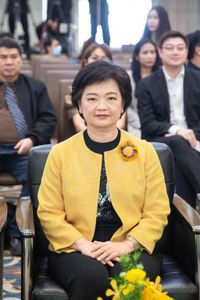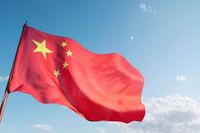In a recent survey conducted by the Trade Policy and Strategy Office (TPSO) of Thailand, consumer confidence has shown a slight increase, reflecting ongoing government efforts to stimulate the economy. The survey, which included responses from 5,701 individuals nationwide, indicated that the consumer confidence index stood at 50.8 in March 2568 BE (2025), marking the seventh consecutive month in which the index has remained above the neutral level of 50.
Mr. Poonpong Naiyanapakorn, Director-General of TPSO, highlighted that this sustained confidence is attributed to various government policies aimed at bolstering domestic consumption and alleviating the financial burdens faced by both individuals and businesses. These measures include economic stimulus initiatives and support for exports, which have continued to grow in alignment with the production demands of Thailand's trading partners.
However, the survey also revealed persistent concerns among the public regarding debt levels and the overall economic situation, particularly in light of the United States' trade policies, which could impact Thailand's international trade and export prospects. Mr. Poonpong noted, "While the consumer confidence index remains above 50, indicating a sense of optimism, we must continue to monitor the economic landscape closely."
According to the survey results, various factors influenced consumer confidence, with the Thai economy accounting for 50.52% of the overall sentiment. Other contributing factors included government measures (15.21%), social stability (7.80%), agricultural product prices (7.72%), the global economy (6.91%), and oil prices (5.14%). Concerns regarding debt and bankruptcy were noted at 4.14%, while other factors made up the remaining 0.93%.
Regionally, the survey indicated that consumer confidence was strongest in the northeastern region, with an index of 55.1, and in Bangkok and its surrounding areas, which recorded 52.1. In contrast, the southern region's confidence index was at 49.7, while the central and northern regions were at 48.2 and 48.1, respectively, showing slight declines from the previous month due to economic concerns such as the rising cost of living and debt.
When examining consumer confidence by occupation, five out of seven professional groups reported indices above the neutral level. Government employees led with an index of 55.2, followed by entrepreneurs (51.3), students (51.6), farmers (50.2), and private sector workers (50.1). However, independent contractors (49.4) and the unemployed or retirees (46.9) fell below the confidence threshold, while specialists recorded a low index of 41.7.
Mr. Poonpong emphasized that the public's confidence in the Thai economy remains strong, largely due to the government's economic stimulus policies, particularly those aimed at reducing living costs and debt burdens through measures such as lowering interest rates and restructuring debt. He stated, "The continued growth in exports, driven by demand from key trading partners, also contributes positively to consumer sentiment."
Looking ahead, the introduction of a digital cash initiative worth 10,000 baht and increased spending during the Songkran festival are expected to further enhance consumer spending across all regions and sectors. To address public concerns, the Ministry of Commerce will closely monitor trade conditions and ensure fair pricing practices, particularly during the festive period, to prevent exploitation or price hikes.
Despite the positive outlook, uncertainties in the global trade environment remain a significant factor affecting consumer confidence. The government is committed to closely monitoring these developments to respond promptly and effectively, alleviating public concerns.
In another significant development, Ms. Saowarot Sunanta, Acting Director-General of the Department of International Trade Promotion (DITP), announced new initiatives aimed at expanding Thai exports, particularly in the beauty and wellness sector. The DITP has instructed trade representatives in various countries to explore trade opportunities and promote Thai products abroad, in line with the policies of Commerce Minister Mr. Pichai Naripthaphan.
Recent reports from the DITP indicate that the beauty and wellness market in China is experiencing rapid growth, with the medical beauty equipment sector alone valued at 77.48 billion yuan in 2023, reflecting a 20.5% increase from the previous year. Projections suggest that this market could reach 100 billion yuan by 2025.
Ms. Sunanta emphasized the importance of understanding consumer preferences and market trends in China, particularly as Chinese consumers increasingly prioritize product quality and safety, especially those with sensitive skin. She noted, "Thai manufacturers must familiarize themselves with China's stringent import regulations and ensure that they have all necessary documentation to avoid import issues."
The China Beauty Expo, a major international event in the beauty industry, serves as a platform for Thai entrepreneurs to connect with potential business partners. The DITP is actively encouraging participation in this event, which takes place twice a year in Shanghai and Hangzhou, Zhejiang Province.
In addition to promoting beauty products, the DITP has launched several initiatives aimed at enhancing trade relations, including a project to elevate Thai cuisine in five key Chinese cities, scheduled for May 4-9, 2568 BE (2025). This initiative aims to create new market opportunities for Thai entrepreneurs.
Furthermore, the DITP is preparing to host various trade events throughout the year, including the Design Excellence Award 2025 (DEmark) to promote outstanding design work, and the Automotive Parts and Accessories Fair 2025 (TAPA 2025) in collaboration with automotive parts associations.
As the DITP works to enhance Thailand's trade presence in China, it will also focus on reducing trade barriers and promoting economic growth, particularly in the agricultural sector. The department is committed to monitoring market conditions and supporting Thai businesses in navigating the complexities of international trade.






